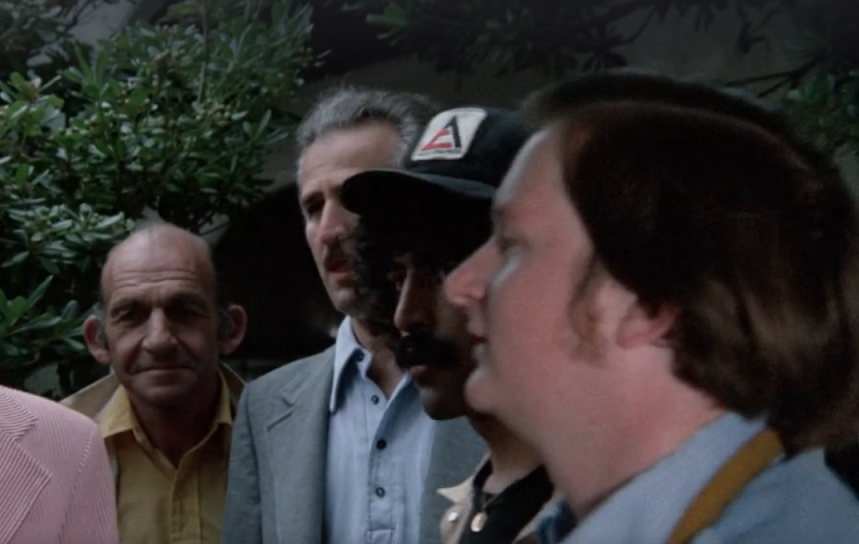 |
| Yeah, it's another one of these articles. Sorry. |
Because we're such good friends, I can tell you that my original idea for this week's article went bust-o, and I had to scramble for a replacement idea at the last minute. Oh well. These things happen in bloggerdom. So I decided to make this week's column another one of those "grab bag" affairs. Sometimes, they're a good way of covering little items that wouldn't quite merit an article on their own.
 |
| A dying gardenia. |
Like, for instance, did you see the career-spanning interview that actress Patricia Arquette recently did with Vanity Fair? It's one of those deals where they show you clips from your old movies and TV shows and ask you to comment on them. I wondered if they would ask her about her role as Kathy in Ed Wood (1994), and to my delight, they did. Patricia shared this anecdote, which I don't think I'd heard before:
I got to meet Kathy O'Hara, who I portrayed in Ed Wood. My sister Alexis was already dressing in drag and doing shows in drag but hadn't really come out as transgender. And there was this whole storyline with Ed Wood, where he was a cross-dresser. And being able to talk to Kathy, who accepted Ed, loved Ed, didn't judge Ed for being a cross-dresser in the 1950s, was really a beautiful thing.
I remember, she said to me, "You know, Eddie was so funny, the way he looked at the world. And he saw beauty in everything. One day, I showed up, and I was meeting him, and I was wearing this kind of rust-colored suit. And Eddie goes, 'Stop! Stop right there! I gotta get you something!' He ran down the street and then ran back, and he was like, 'Look at this gardenia! It's exactly the color of your suit!'" Now, of course, that's like a dying gardenia. It's like a rotting gardenia. It was so beautiful, like, Eddie didn't realize that it was something other people would cast away. He saw the beauty in this. And she saw the beauty in Eddie seeing the beauty in this thing and his innocence of his vision of the world. So beautiful to see somebody who could love people like that. It's nice.
Naturally, readers keep sending me little tidbits of information as well, bless their Wooden hearts. Recently, a reader named Matty (@Reverend_Banjo on Twitter) sent me this very interesting missive:
Hey Joe. You've commented before on whether a scene in Fugitive Girls was influenced by A Clockwork Orange. As you say, Eddie kept tabs on pop culture, but I'd also like to point out that he used the phrase "ultraviolence" in 1965's Hollywood Rat Race, long before the film version of A Clockwork Orange. I'm interested in where he could've picked up "ultraviolence," since it's used in a (characteristically) idiosyncratic way. "If nudity is used for ultraviolence..." Perhaps he read the novel?
This sent me down a little bit of a rabbit hole. Did the term "ultraviolence" actually originate with Anthony Burgess' 1963 novel, A Clockwork Orange? That book certainly popularized the term, but I found it in newspaper articles as early as 1923 in America and 1935 in England. Meanwhile, Google's Ngram Viewer says it goes back at least to 1926. It's certainly possible, though, that Eddie read the Burgess novel. I know he scoured the newsstands looking for fodder for his own writing, so a copy of A Clockwork Orange could have reached him there.
Finally, I want to say a word or two about Meatcleaver Massacre (1977), since a reader named Steve Frisch contacted me through Facebook to ask about this film and my review of it. Eddie's involvement is still speculative, but I want you to know that the film is now freely available on Tubi in a print that is much, much better than the one I reviewed. Sadly, this version lacks the explanatory Christopher Lee footage. Oh well. Can't have everything. We do, however, have our clearest view yet of the extra who is supposedly Ed Wood during the press conference scene. Judge for yourself.
 |
| Is this Ed Wood in Meatcleaver Massacre? |

No comments:
Post a Comment